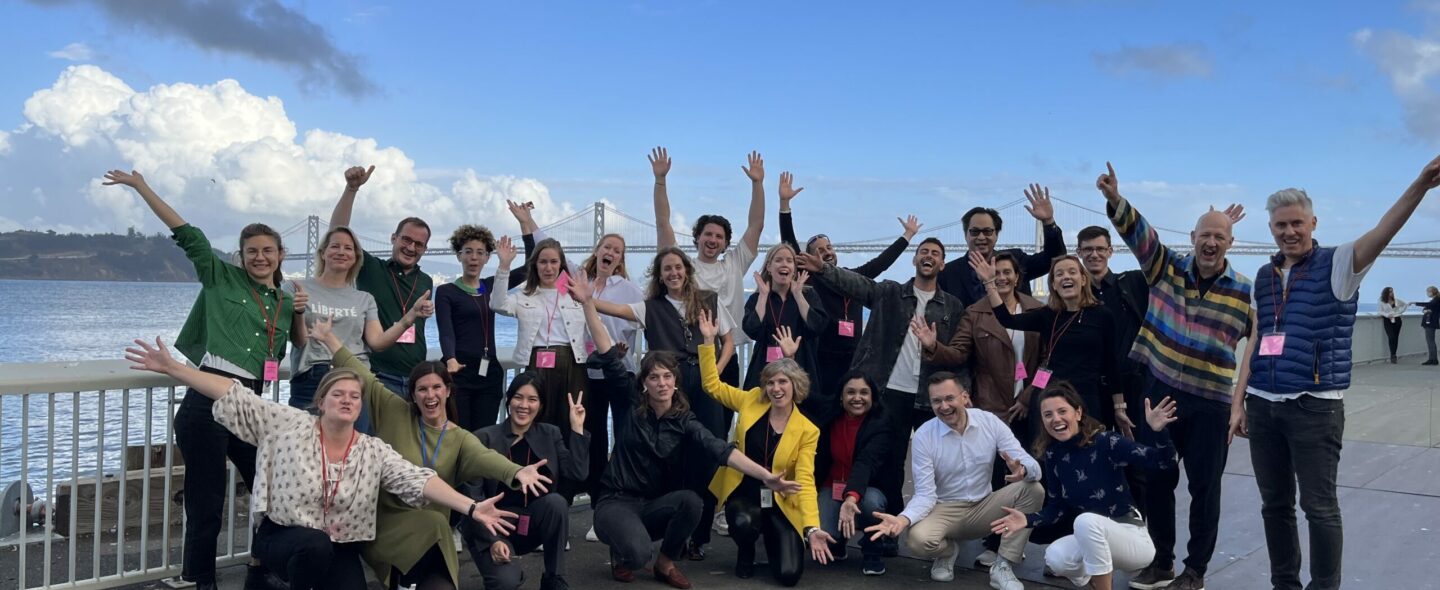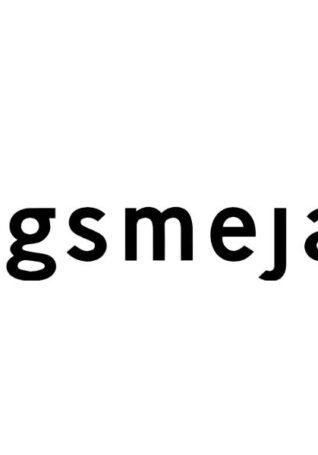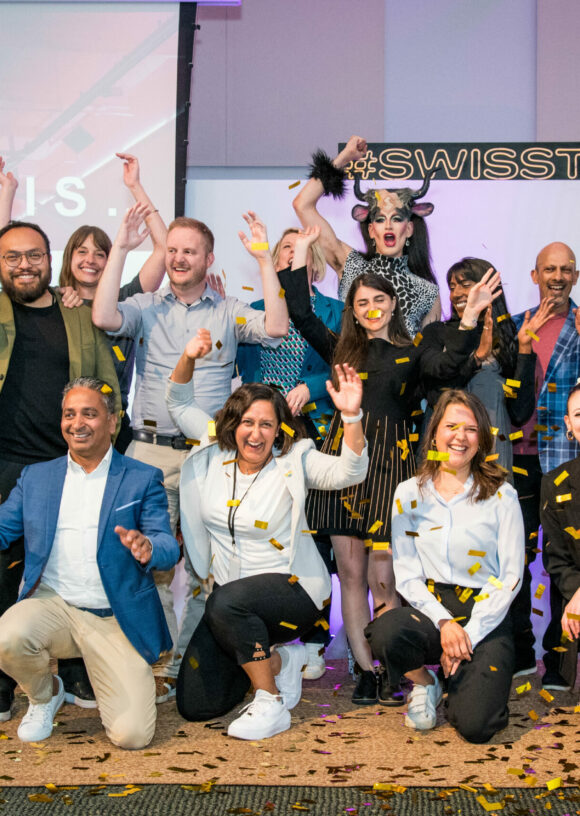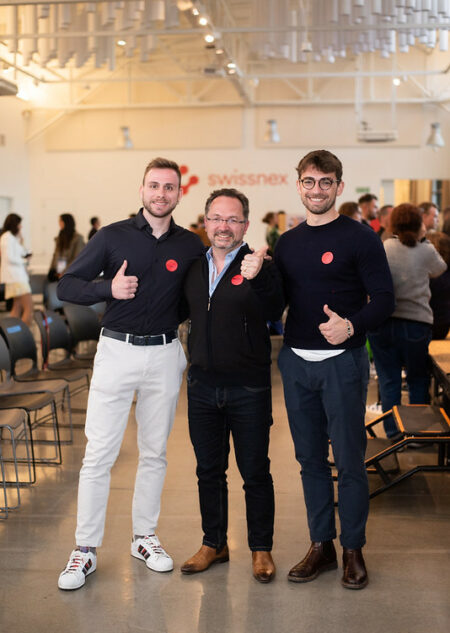
San Francisco, September 28, 2023 – Swissnex in San Francisco is turning 20! To mark the occasion, we are looking not only at the past success stories, but shine the spotlight on emerging Swiss innovators, who might change how we think of cities in the future.
For them we created our new program “Metropolis – Sustainable Futures Under Construction”. Metropolis creates a space for visionary ideas to emerge by connecting dreamers and doers from both Switzerland and the Bay Area to co-create practical solutions for the future’s most pressing issues. For one week in early November 2023, Pier 17 will turn into an Urban Futures Lab, where participants receive targeted support in exploring the US landscape and thinking big.
Meet the Metropolis Projects:
VunaNexus AG – Urine as fertiliser, from waste to ressource
VunaNexus uses patented technology to transform human and livestock urine into two valuable products: a hygienically safe, free of all pollutants, certified and marketable fertilizer called Aurin, and water that can be reused.The main product is a turn-key solution for onsite urine treatment in large real estate projects that generates a new type of revenue stream for building owners and has a substantial CO₂ impact. We have four projects under construction financed by the European Space Agency.
Rematter – Rematter.Earth
Rematter is a robotics and building material company with the mission to make construction fully circular and emissions positive. The first product is a hybrid earth-timber floor slab. Most current floors are made of reinforced concrete, with cement and steel being the #1 CO2 emitting materials worldwide. Current timber alternatives underperform with regards to thermal activation, are much more expensive or underperform in terms of fire-protection and sound-protection. Hence, Rematter helps building developers, architects, and civil engineers replace reinforced concrete floors at scale with low-cost, high-performing, best-in-class emissions (80% less carbon, 60% less embodied energy), circular and healthy floor slabs.
Nomoko
Nomoko is a Zurich (Switzerland)-based technology company whose mission is to connect the physical and digital world by building the most accurate and up-to-date global 3D map that has ever existed. They capture geospatial data by flying drones over cities and points of interest.They process the data into 3D hyper-realistic models and stream them on the web and mobile. Nomoko is the first and only vertically integrated solution for everything 3D. They acquired our first large-scale customers like Google, Meta, and Deutsche Bahn (largest railway company in Germany) and have a clear roadmap to become the central hub for 3D map data for commercial use worldwide.
Singapore-ETH Centre, Future Cities Lab Global – Dense and Green Cities: Emerging Models of Integrated Urban Development
Contemporary urban planning and design practices are actively embracing sustainable integrated districts (SIDs) as a transformative model for future high-density, high-liveability cities. SIDs provide a platform to unleash the full potential of urban innovations and system solutions by deploying and integrating them at the district scale. The intrinsic relationship between density and sustainability in SIDs is acknowledged as mutually dependent and mutually reinforcing, leading to synergistic outcomes.
SIDs serve as testing grounds for place-based governance, fostering collaboration among stakeholders. Case studies in Europe and Asia, including Zurich and Singapore, explore urban planning, architecture, environment, economics, and governance. The research, led by interdisciplinary teams, informs strategies for high-density, liveable cities. It is facilitated by the Singapore-ETH Centre, which analyzes Zurich and Singapore, offering insights into their urban success and governance approaches for global applicability.
Empa – Swiss Federal Laboratories for Materials Science and Technology LBNL Berkeley – GOES – Geothermal-based Optimized Energy Systems
The project GOES aims to develop a Platform-Based Design (PBD) framework to enable rapid and transferable innovations and implementations of geothermal coupled energy systems.
ETH Zurich, Chair of Circular Engineering for Architecture (CEA) – Exploring a Digital Circular Construction Ecosystem: transdisciplinary challenges and opportunities for systemic change towards reuse in the built environment
In this project, we explore the transformative potential of a digital ecosystem for the implementation of circular economy in the construction industry. Enhancing resource valorization to move away from the linear model presents a clear path to reducing the significant environmental impact of buildings and infrastructure. However, achieving this shift demands a systemic change to disrupt current “take-make-waste” practices.
To achieve this, we adopt a transdisciplinary approach, forging close collaborations with academic and industrial partners. Together, we establish a robust ecosystem involving digital standards and technologies, novel legal frameworks and business model innovation, aimed at introducing organizational change to facilitate the circulation of building components for widespread adoption of circular construction principles in the built environment.
UZH, Informatics and Sustainability Research Group (ISR) & Digital Society Initiative (DSI) – The Sky Is the Limit? Ethical Acceptability of Autonomous Systems in Switzerland
The ethical acceptability of disruptive technologies touches upon important issues pertaining to access and equity, benefit sharing, harm and risk, consent, and allocation of public resources, among others. Taking drones used as urban air mobility solutions in Switzerland as an exemplar, this research project aims to investigate societal acceptance of real-world use cases, using an interdisciplinary and co-creation approach of «Urban Living Labs».
The project seeks to provide analyses about the ethical acceptability of high-impact technology from the perspective of societal acceptance, and develop practical governance tools for policymakers and the public to achieve ethically informed transformations toward sustainability. Project partners include leading industry and civil society members, Canton of Zurich, the Federal Office of Civil Aviation (FOCA), and the Zurich Knowledge Center for Sustainability Development (ZKSD). The project is funded by the UZH Research Talent Development Fund (FAN).
ENAC EPFL – The Blue City Project
The Blue City Project is a transdisciplinary Innosuisse Flagship project, led by Professor Jeffrey Huang from EPFL / CONVERGEO, aiming at modelling and simulating a city’s multi-layered, interconnected network of flows. The project explores the concept of digital urban twins to assist the transition from linear to circular cities, and the use of AI for diagnosing and predicting city structures and flows, towards the ultimate goal of improving urban well-being, ecological value (netzero), biodiversity, and the agency of citizens.
Accademia di architettura, Università della Svizzera italiana – Urban Energy Landscapes (in Transition)
While in recent decades, the field of architecture has primarily focused on the self-sufficiency of individual buildings, our research on energy landscapes aims to bring back scholarly attention to an approach that prioritizes energy conservation and generation at the urban scale. Such an approach relies on the idea of the productive (and not only consumptive) urban environment, in which built fabric, topography, soil, bodies of water, green spaces, as well as regional climatic conditions (determined by sun, wind, precipitation and seasonal temperatures), serve as potential parameters for energy production. To conceive the city itself as an energy source requires a new way of architectural thinking.
ZhdK – Safir – Drink Water Filter for developing regions
SAFIR – a water filter for developing rural and urban regions.Clean water is not a matter of survival in many parts of the world. Its unavailability is a source of danger for health and the global climate. SAFIR is a water filter for developing regions that can filter out heavily polluted water simply and efficiently.
The percentage of humans that have no access to clean water is much bigger than those who have this access. Environmental scientists from EAWAG and designers from the Zurich University of the Arts worked together to develop an innovative technical method into a product that is suitable for everyday use, can be manufactured cheaply and meets the cultural and functional requirements of its users. The principle is based on a gravity flow, patented by EAWAG, that requires neither electricity nor chemicals or other add-ons. Its lifespan is therefore theoretically infinite. SAFIR is simple and robustly constructed from a double-walled container and provides a family with its daily requirement of purified drinking water.
MacIver-Ek Chevroulet – Concrete re-use for the Pétanque Renanaise
Development of construction methods to attain a radical sustainability for a new public building in the city of Renens (Switzerland). For instance, concrete floor plates of an existing building are being cut and re-used in our building as the primary load bearing structure, which is a world premiere, allowing us to reduce the CO2 impact of concrete by 95%.
Other constructive methods, such as the wooden roof structure made out of standard full wood profiles assembled mechanical, thus allowing a complete future re-use of the elements, a new roof composition seeking an optimal combination of extensive vegetation, solar panels and sun light, as well as an extensive work on the plan of the building, allowing what was originally planned by the city as a mono-functional building to become a flexible structure opening itself to the different inhabitants of the city, humans and non-humans.
Zurich University of the Arts – Speaking Bread. Relationships beyond Materiality
Speaking Bread is a multidisciplinary research project that examines the possibility of new forms of ecologies, by analysing inter-species relations through the process of making artisan and traditional bread making in Spain, investigating the possibilities of a less anthropocentric understanding of our environment.
By encountering ourselves with new possibilities in the human-environmental relationship, and by discovering localised forms of knowledge in conscious practices, we question the role of certain categorisations that have prevailed in the history of arts, sciences and humanities, allowing us to do an in-depth exploration of the ecological concerns of today’s world.
[y]our2040 – Envisioning [y]our Urban Future
Envisioning [y]our urban future aims to co-develop sustainable outcomes for cities and their infrastructures and create environmentally-friendly urban environments. Their goal is to collect stories from urban residents to support livable cities and encourage positive ecological impact. Collaboration, networks, and partnerships play a crucial role in shaping the future. We aim to expand our community of experts and innovators who are proactive in anticipating future challenges.
They seek diversity of people and thought by engaging with communities and citizens in San Francisco – as well as Switzerland. They recognize Switzerland’s potential to lead and innovate in the urban sector, San Francisco’s ability to lead in digital and technology sectors, [y]our 2040’s ability to lead in urban environments, and on foresight and futures thinking. By embracing this diversity of sectors and locations [y]our urban future aims to capitalize on this potential to both innovate and bring new voices into the fold. The desired outcome of this project is to produce a book of ‘[y]our Urban Future’ wherein they can share the outcome and positive mindsets with people globally.
ECAL
In October 2022, the Master Product Design students and tutors of ECAL/University of Arts and Design Lausanne visited and immersed themselves in Fogo Island. The project resulted in eight speculative yet practical wind turbine designs, considerately informed by various perspectives. U.F.O.G.O. is a sustainability project grounded in reality, but not limited by what already is, produced in collaboration with the Shorefast Foundation of Fogo Island (Canada) and in consultation with engineers from HEIG-VD/School of Management and Engineering Vaud.
Kühne Wicki
Kühne Wicki is an interdisciplinary office with strong expertise in futures research, futures development and futures implementation – dedicated to stuff that makes the future more accessible and tangible.
Thank you to our partners
The anniversary programming is a collaboration with the Institute of Technology in Architecture (ITA), Department of Architecture, ETH Zürich, the University of Basel Innovation Office, Future Sustainable Territories, Infrastructure and Cities (FUSTIC), an initiative of EPFL and its faculty ENAC (School of Architecture, Civil and Environmental Engineering), and Enterprise for Society Center (E4S), and kühne wicki Future Stuff.
A special thank you goes out to our sponsors and supporters. The full list is available on the Metropolis Overview page.
-
![]()
Meet the projects
Anniversary Events
Events in San Francisco
Join us for selected anniversary events in San Francisco between November 7–9, 2023.
Learn more
Join us for selected anniversary events in San Francisco between November 7–9, 2023.
-
![]()
-
![]()
Events in Switzerland
Celebrate with us
Metropolis creates a space for visionary ideas to emerge by connecting dreamers and doers from both Switzerland and the Bay Area to co-create practical solutions for the future’s most pressing issues.
Join us


